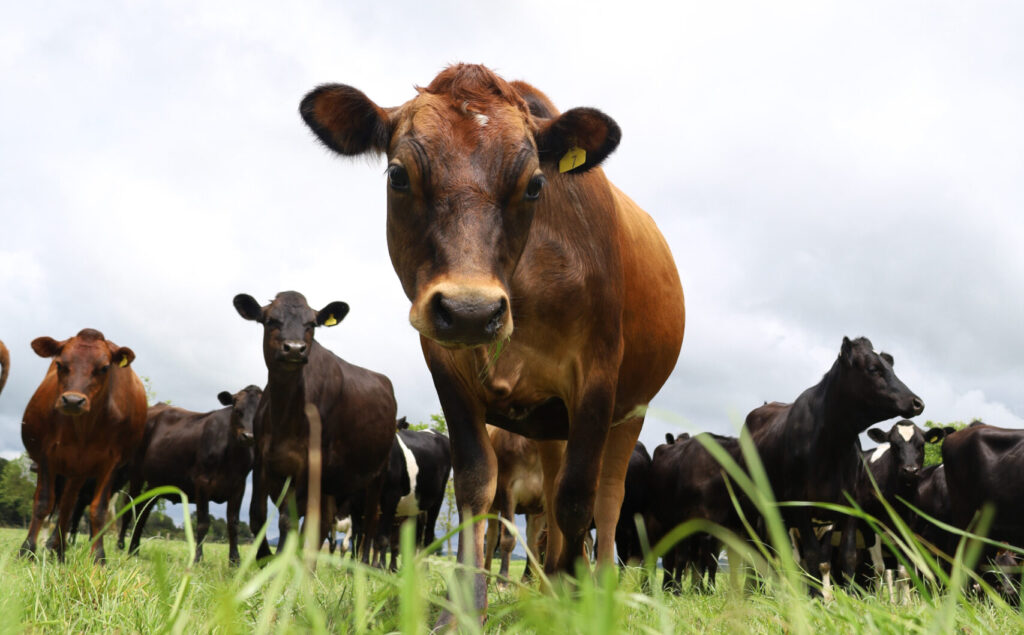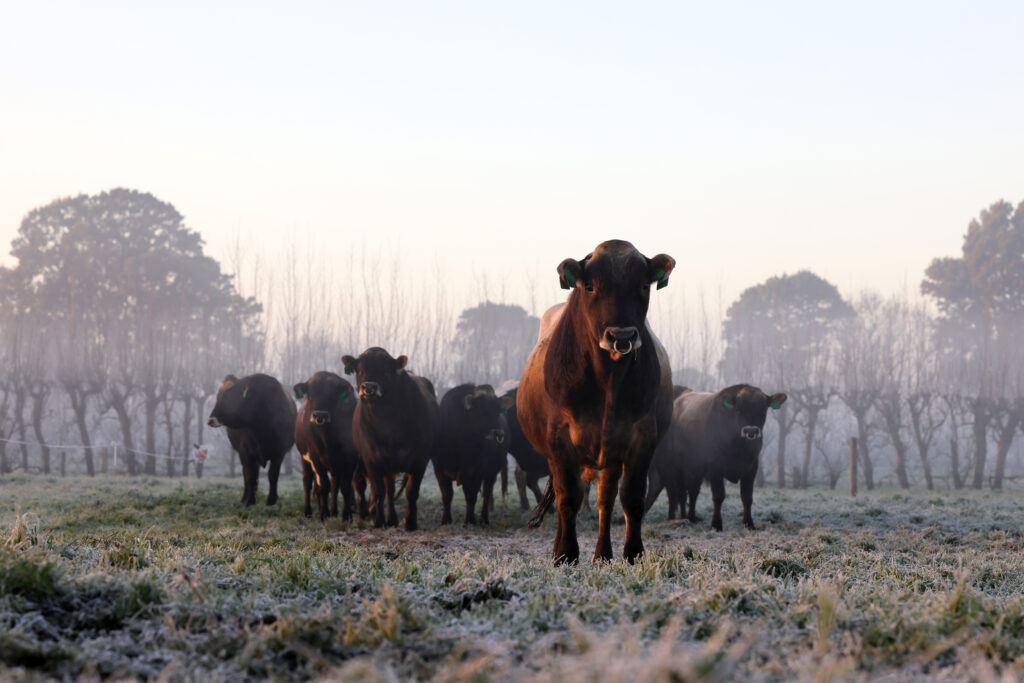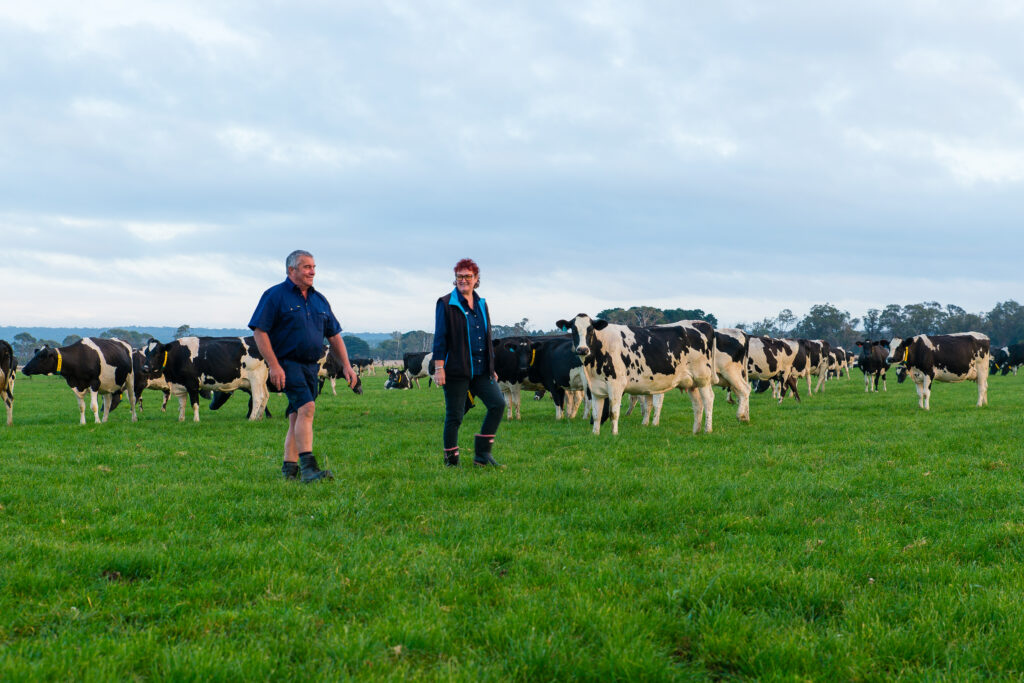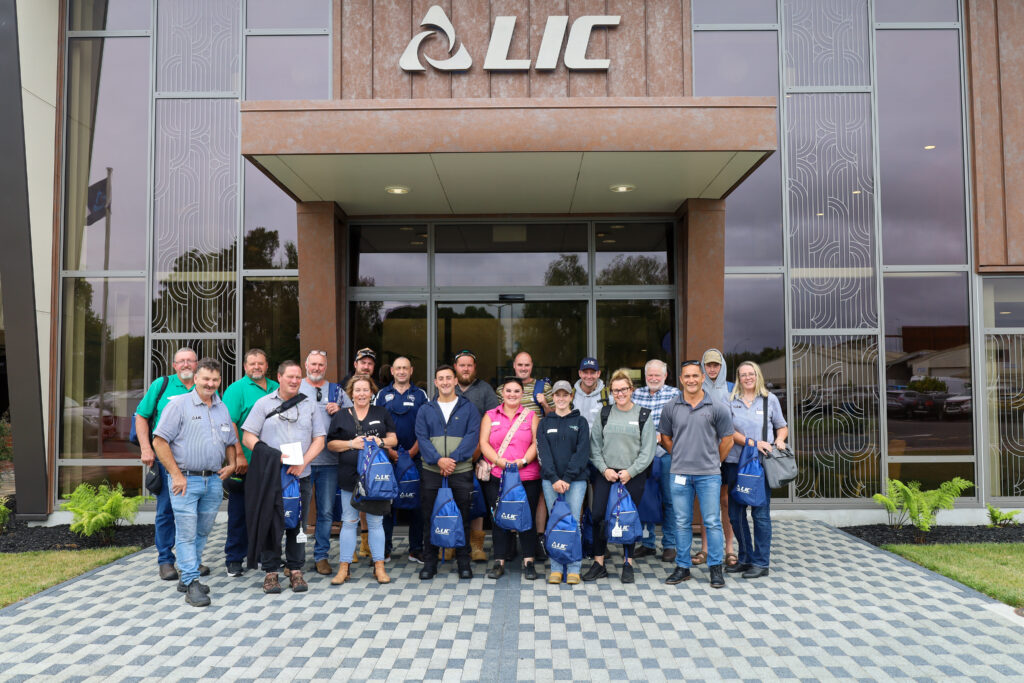This honour recognises Dalmore Dairy’s success in the 2022-23 season, achieving a 12.5% return on assets. Mahesh reveals, “Becoming a finalist has helped me see that I’m doing really well.”
He emphasises the benefits of participating in the competition, saying that it keeps him informed about the farm’s progress. It also allows him to observe the strategies of other top-performing farms, identifying areas of excellence from which to learn.
Dalmore Dairy is owned by the BWB Investment Group, which acquired the farm in 2017, expanding its portfolio to include a total of seven dairy farms. Each farm is operated with its own team and manager who collaborates closely with the BWB Group and other stakeholders regarding budgets and planning.
Mahesh oversees four full-time staff members: Nick Robinson, Christina Alderson, Jim Payne and Jack Herring.
Mahesh has been a resident of Australia for seven years. His journey into dairy farming began with a Bachelor’s degree in Agricultural Science from India, followed by a Master’s degree from the University of Tasmania. Five years ago he started working as assistant manager at Dalmore while he continued his studies, advancing to the position of farm manager two seasons ago.
Reflecting on his journey, Mahesh credits his success to the support and mentoring he’s received, highlighting the nurturing environment provided by BWB. “They don’t just leave you to fend for yourself,” he notes. “They allow you to make decisions while ensuring you have the support you need to succeed.”

The numbers speak for themselves
Currently milking 900 cows, split over two herds, Mahesh found it was a mixed bag of breeds when he first took over management. Now, they are predominantly New Zealand crossbred cows.
Mahesh has very few issues with mastitis and is currently bringing heifers into the dairy with minimal kicking issues; they are settled and exhibit good temperament. He has achieved great results in production over the last 2–3 years. The joining period spans 9 weeks in total, beginning with AI for 4-5 weeks followed by the introduction of herd bulls. Last season, the 6-week in-calf rate was 85%, contributing to an overall in-calf rate of 94%.
The herds are spring calving, with BWB Group’s breeding goal aimed at producing a 480 kg cow capable of yielding her body weight in milksolids. This aligns with Mahesh’s philosophy to be both environmentally and financially sustainable. Last season, the cows achieved 478 kg MS/cow, while the previous year they produced 474 kg MS/cow. They adopt a low-input system, with the herd consuming around 1.2 tonnes of grain annually.
Behind the award-winning operation: people, technology and attention to detail
The 50-bale rotary dairy is connected to a herd management system featuring automatic cup removers, automatic teat spray and auto-drafting gates, minimising labour and maximising productivity. The farm also features a calving shed and feed pad capable of accommodating up to 450 cows at one time. Shielding the cows from the elements reduces labour needs during calving and simplifies monitoring efforts. This has already shown a decrease in calf mortality attributed to the cleaner environment.
Mahesh selects his bulls with the support of his LIC District Manager, Rowan Priest. He uses the Breeding Worth (BW) index as it aligns with his desired traits for the herd. He also pays special attention to temperament, fertility, and somatic cell count (SCC). Mahesh values Rowan’s expertise and guidance, particularly in choosing bulls for the yearlings and ensuring easy calving options. Knowing that his heifers represent his best genetics, he aims to match them with top-quality genetics while avoiding any calving complications.
Monthly team meetings are held to address any issues and discuss plans for the coming month, as well as collect feedback from the team. Mahesh supports career advancement, encouraging team members to pursue industry training in their areas of interest.
“I believe people are the key to any successful business” Mahesh adds “I like to involve everyone in the business and ask them about their future plans.”

Mahesh has a keen and detailed eye for pasture management, something the Dairy Business of the Year judges recognised. Every week, he conducts a pasture walk, recording grass cover data into an app on his phone. He says this is an easy and efficient way to optimise the feed management of the perennial ryegrass/clover pastures. He also tests the soil annually and monitors soil compaction. Twice a year, feed quality tests are conducted on farm grass samples to highlight any potential issues.
“Walking the farm is key to seeing what’s going on in each paddock and the farm as a whole. I get to see what’s happening with the grass.” says Mahesh.
Staff are also trained to use a plate meter for measuring residues in the paddock, with target post-grazing residual set at 1550-1600 kilograms of dry matter per hectare.
The farm has four centre pivot irrigators equipped with satellite GPS, managed via a phone app to adjust application rates and stop-start the machines. Additionally, there is a solid-set irrigation system that operates on solar power.
With a grazing area of 270ha, last season they experienced very dry conditions, putting pressure on their bore water systems. Subsequently, they have installed additional irrigation, now covering 210ha of land. Adding to this investment, Mahesh mentions underground drainage has been installed over recent years and they are currently exploring options for virtual fencing technology and collars across the herd.
Due to the farm’s tendency to become quite wet during winter months, Mahesh adds that the herd is agisted off-farm while the cows are dried off.
Mahesh emphasises his focus on sustainable practices, such as using recycled water to wash the yard, significantly reducing water consumption.
Mahesh’s vision for a sustainable future
As he looks to the future, Mahesh says that there are a lot of positive aspects being a part of the dairy industry. It is not only a profession but a passion for him.
“I really enjoy the lifestyle of being a dairy farmer, I like the routine of it and I love the community. I’m surrounded by really good people.”
“With rising production costs and fluctuating milk prices, it has become more important than ever to maximise milk production. It is crucial to use sustainable farming practices to ensure longevity and resilience of our farms for future generations.”
Mahesh and his team’s dedication to incorporating further advancements in dairy farming practices will ensure Dalmore Dairy remains a beacon of excellence in Tasmania’s agricultural landscape.



